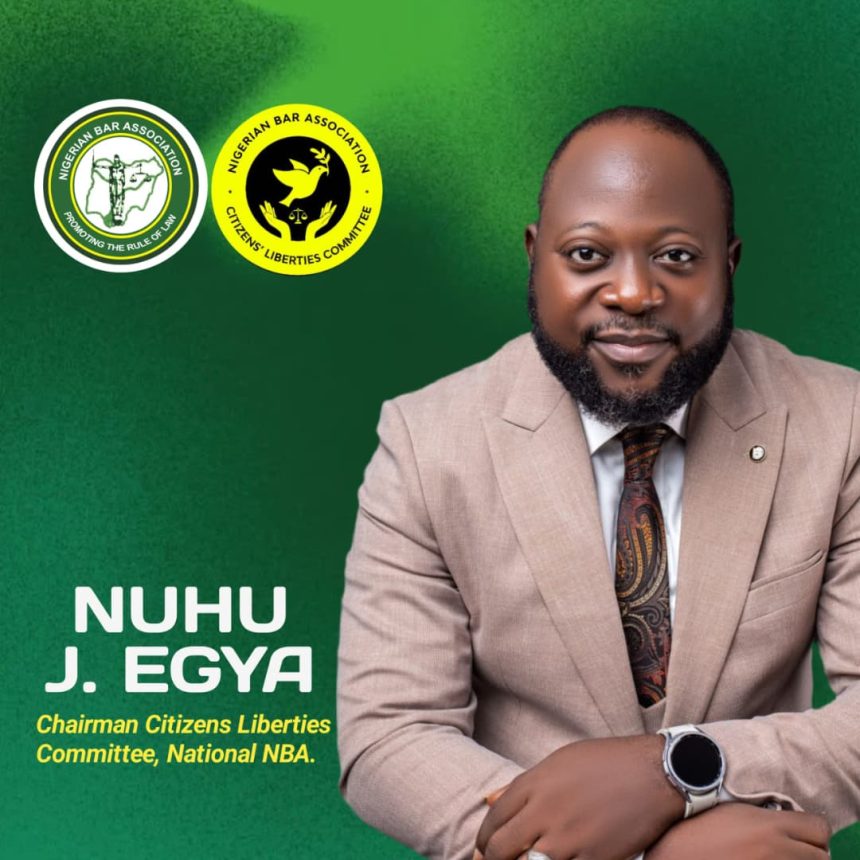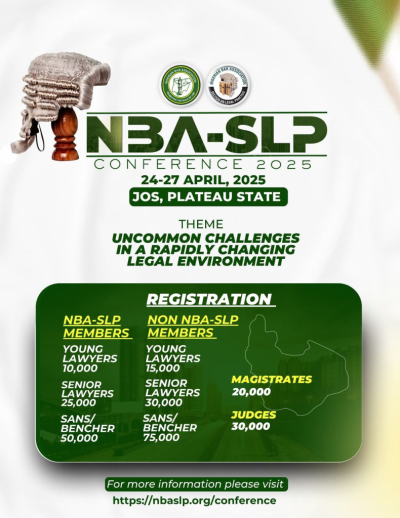The Nigerian Bar Association (NBA) continues to lead conversations around constitutionalism, governance, and the protection of citizens’ rights. At the forefront of this discourse, the Chairman of the Citizens Liberties Committee, National NBA, and past Chairman of the NBA Keffi Branch, Nuhu J. Egya, Esq., LLM, Notary Public, has delivered a powerful legal appraisal on the centrality of Section 14(2) of the 1999 Constitution of the Federal Republic of Nigeria in safeguarding lives, properties, and the welfare of Nigerians.
Egya stressed that the provision, which proclaims the sovereignty of the people and situates their security and welfare as the primary purpose of government, must remain the benchmark for evaluating good governance in Nigeria.
In his paper titled “Prioritising Citizens’ Liberties by Securing Lives and Properties and Guaranteeing Welfarism: The Constitution as a Benchmark for Good Governance as Enshrined under Section 14(2),” Egya raised fundamental questions on the limitations posed by Section 6(6)(c) of the Constitution, which renders provisions of Chapter II non-justiciable. He further examined the critical role of the judiciary and civil society in ensuring accountability and upholding the spirit of this constitutional guarantee.
Drawing on jurisprudence and case law, he cited landmark decisions including:

- Attorney-General of Lagos State v. Attorney-General of the Federation (2003) 12 NWLR (Pt. 833) 1, where the Supreme Court affirmed that Chapter II, though not justiciable, is fundamental to Nigeria’s governance.
- Fawehinmi v. President, FRN (2007) 14 NWLR (Pt. 1054) 275, where the Court of Appeal recognized Chapter II as a moral and political compass.
- Archbishop Okogie v. Attorney-General of Lagos State (1981) 2 NCLR 337, affirming government’s duty to be guided by welfare provisions.
- Attorney-General of Bendel State v. Attorney-General of the Federation (1981) 12 NSCC 314, where the Supreme Court described the Fundamental Objectives as the “conscience of the Constitution.”
Egya also noted the ECOWAS Court’s ruling in SERAP v. Federal Republic of Nigeria (ECW/CCJ/APP/08/09) as a shining example of how socio-economic rights, though aspirational under Nigerian law, can be enforced through regional judicial mechanisms.
He argued that the social contract theory, as advanced by philosophers such as Locke and Rousseau, underpins Section 14(2), reaffirming that sovereignty resides in the people and government exists as a trustee of their collective will.
In conclusion, Nuhu J. Egya urged that while the non-justiciability clause weakens enforceability, Section 14(2) remains a constitutional conscience and a moral force against which the legitimacy of government must be measured. He emphasized that it is both a philosophical foundation and a civic tool for mobilizing accountability in Nigeria’s democratic journey.
Read More:









